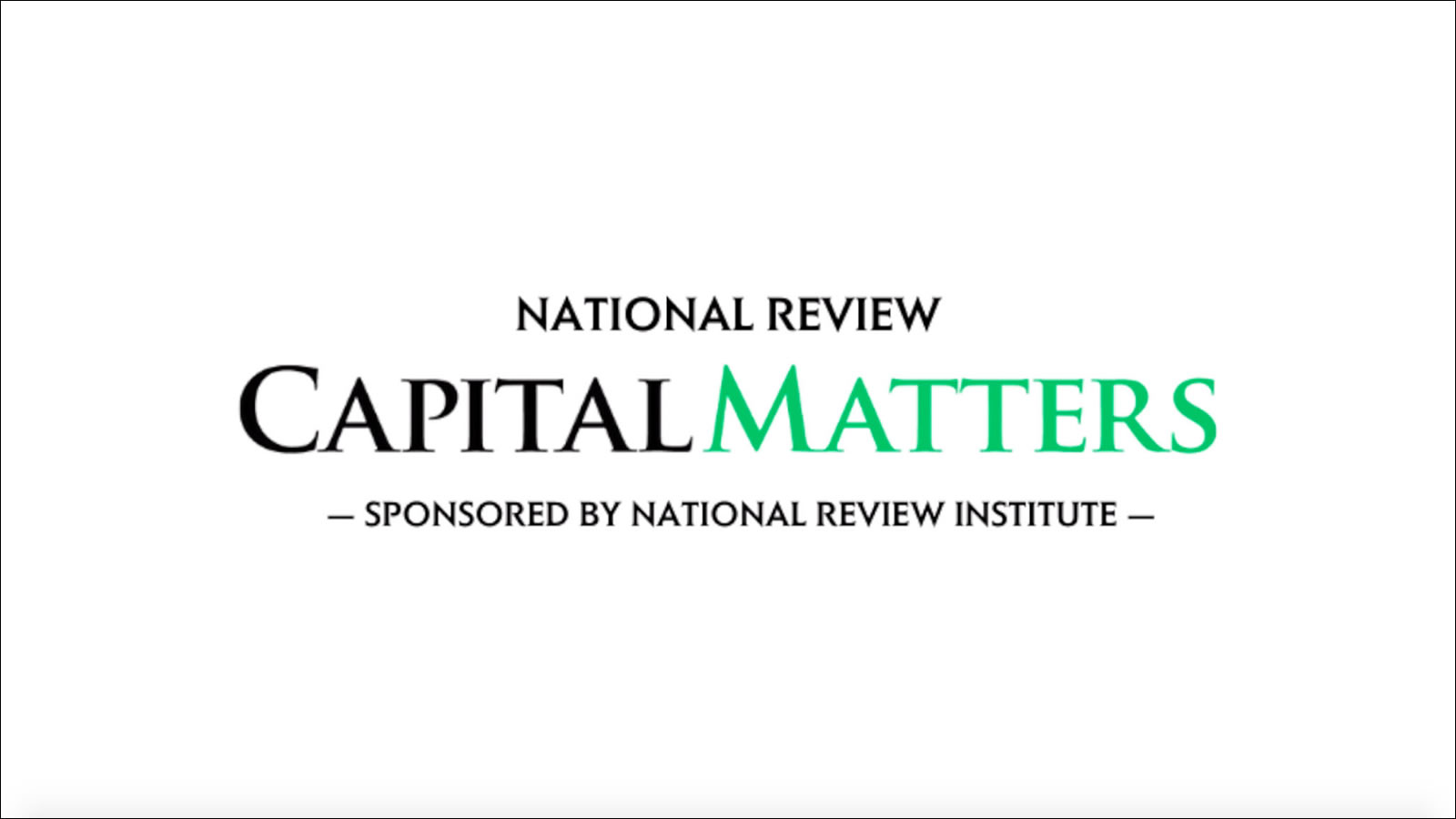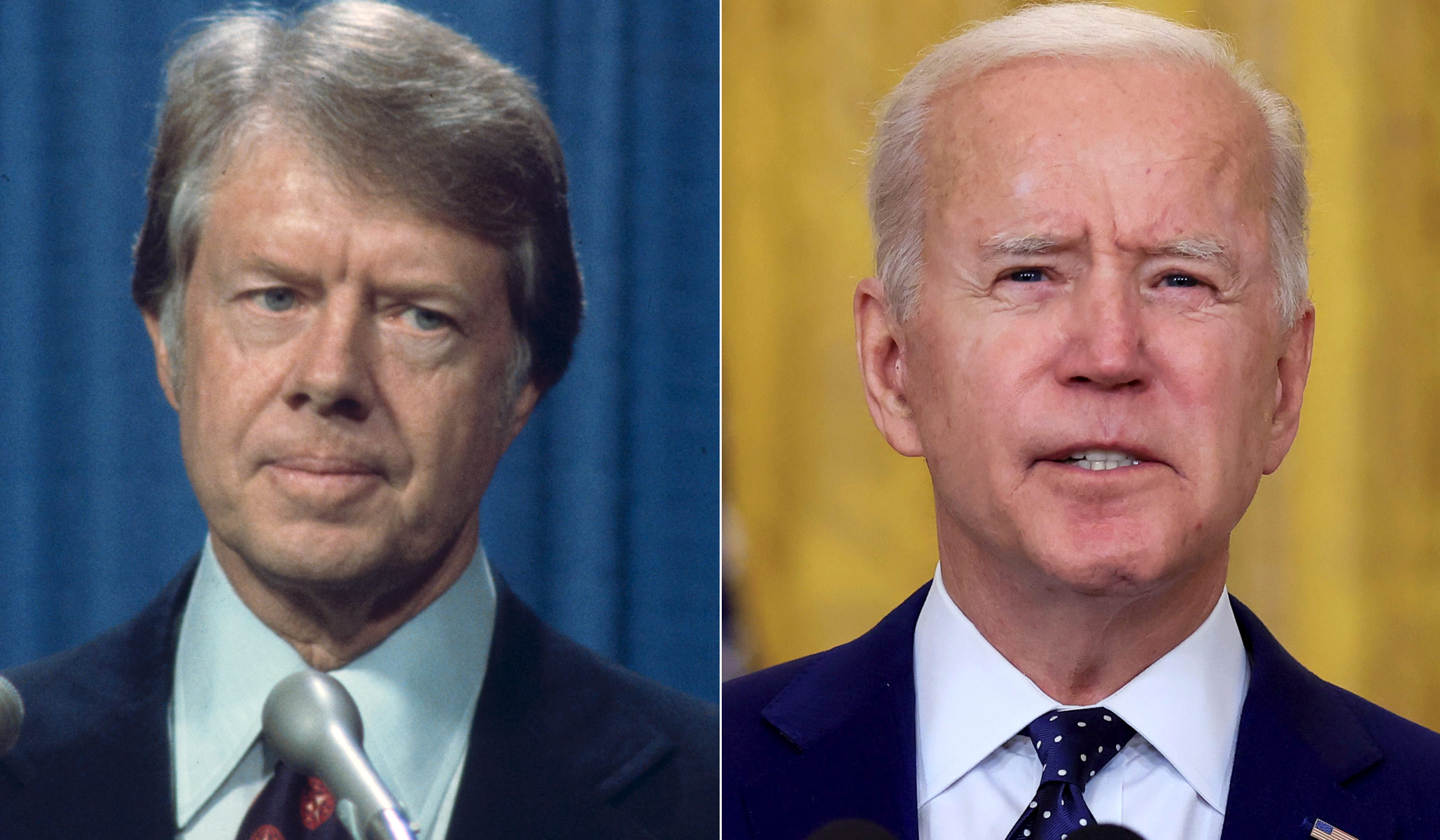Joe Biden Is Worse Than Jimmy Carter
This article appeared at National Review Institute’s Capital Matters on September 23, 2021.

Don’t conflate Carter and Biden on Policy
By Paul J. Gessing
Amid the ongoing debacle in Afghanistan, some on the right have started making comparisons between the presidency of Jimmy Carter and that of Joe Biden. The parallels between the Iranian hostage crisis and the disaster in Afghanistan are limited, but it is notable that the hostage crisis was the unforeseeable consequence of a series of events that the U.S. was in not in any real position to control (which is not to claim that Carter handled the events leading up to the fall of the Shah particularly well, on the contrary). By contrast, what is now unfolding in Afghanistan is the direct and all too predictable consequence of a specific decision that — down to its disastrous timing — was ultimately Biden’s to take.
Another seeming parallel between Carter and Biden is the problem of inflation. Of course, inflation was a major issue throughout the Carter administration as well as during the Nixon and Ford years, with rates bouncing around wildly through much of the decade. But Biden’s inflation problem, like the Afghanistan debacle, is likely to end up resting mostly on Biden’s own shoulders if his spending plans go through, with the rate having jumped from 1.4 percent in January when he took office to 5.39 percent in June.
To be fair, at least some of the inflation that we have seen so far can be put down to both the supply chain disruptions that have followed the pandemic and measures introduced, generally with a high degree of bipartisan support, during both the Trump and Biden presidencies, to help offset the impact some of the pandemic’s effects . The Fed, too, has played its part.
Persistent inflation could be avoided, but between the passage of the $1.9 trillion American Recovery Plan and the pending $1.1 trillion “bipartisan infrastructure” bill and the Democrats’ planned $3.5 trillion spending bill, it is hard to be optimistic. The only question is whether Congress will oblige.
Carter, on the other hand, nominated Paul Volcker to chair the Federal Reserve. While there are disagreements as to why he did this, there is not too much dispute that he knew that Volcker would take a tough line on inflation, which he quickly proceeded to do. Biden remains oddly indifferent to the risk of inflation. Hopefully, Congressional Republicans and Democratic moderates such as Joe Manchin (D-WV) and Kyrsten Sinema (D-AZ) will thwart Biden’s spending ambitions.
As if the scales were already not tilted in Carter’s favor relative to Biden’s (at least to date), the starkest differences between the two can be found in the area of economic regulation. On this transformative issue not only was Carter much better than Biden, but he may be one of the most notable deregulatory presidents in modern history. He’s almost certainly the most unexpected.
As president, Carter led the way in deregulating America’s airlines and interstate trucking, as well as freight railroads and even beer brewing. Each of these reforms has stood the test of time, resulting in cheaper transportation, more industry competition, and better living standards for millions of Americans.
While Americans often complain about cramped quarters on airlines, the actual preferences of most ticket purchasers continues to be for inexpensive, “no frills” options. Meanwhile, just last year over 1,000 supporters of the 1980 Staggers Act, which deregulated much of the railroad sector, signed a letter reaffirming their support for the policies outlined in that bill. As noted in that letter, since the act’s passage, “[r]ail traffic has doubled, rail productivity has more than doubled, rail rates are down more than 40 percent, and recent years have been the safest on record.”
In other words, deregulation worked, and it has been working to our benefit for decades since.
Lest you think you haven’t benefitted adequately from more efficient transportation, Carter also signed legislation that legalized craft brewing, something that helped pave the way to the numerous innovations in beer brewing that have pleased millions of Americans, from hop-heads to those who prefer fruit and chocolate-infused flavors and everything in between.
And how is Joe Biden’s record by comparison? He hasn’t touched brewers (yet), but he is already attempting to re-regulate freight railroads. A July executive order on “providing competitiveness in the American economy” encouraged the Surface Transportation Board (STB) — the federal agency that oversees economic regulations for private freight railroads like Norfolk Southern and Union Pacific — to consider imposing “forced access” more regularly.
This means that privately owned and maintained railroads could be forced to turn over traffic to competing railroads at potentially below-market rates – a clear violation of private property rights and free market enterprise as we know it. The order is akin to net neutrality for railroads. Railroads already voluntarily allow access to their competition in order to improve service across the industry, but the last thing Americans or freight railroads need is for Uncle Sam to get back into the business of heavily regulating railroads.
To date, the Biden administration has done virtually nothing to deregulate the economy. On the contrary, aside from its spending spree, what passes for “accomplishments” in the Biden administration largely involve undoing deregulatory executive actions on the part of the Trump administration on the environment, or imposing entirely new, onerous regulations such as the ban on new oil and gas permits on federal lands, which has now run into trouble in the courts
These points may not convince many conservatives that Jimmy Carter was a good president (and to be clear, I don’t think he was, myself) , but perhaps they will convince some that Carter had significant and lasting accomplishments to show for his four years in office. Given his track record to date, Joe Biden is beginning to make Jimmy Carter look pretty good. That may not say that much about Carter, but it says a lot about Biden.

